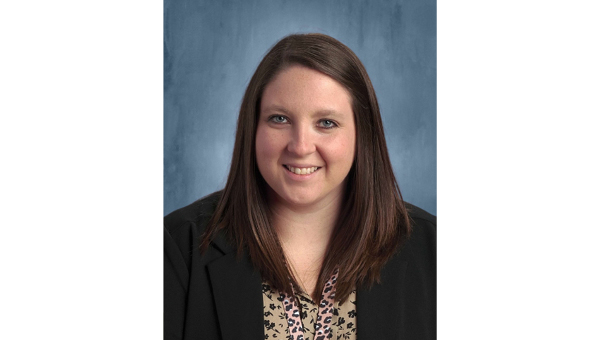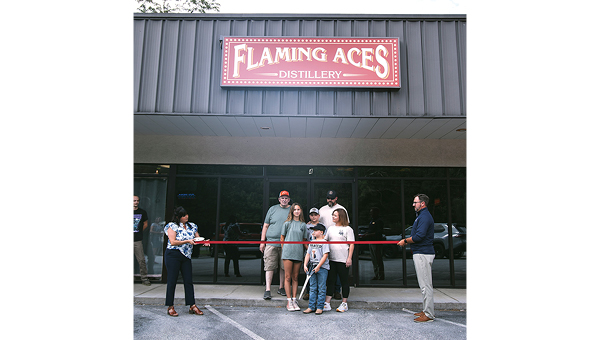Working to eliminate veteran suicide
Published 10:21 am Monday, October 29, 2018
The men and women in our armed forces provide an invaluable service to our nation; protecting us from danger and ensuring we can keep the freedoms we hold dear. Unfortunately, all too often when these same men and women return home from war or after separating from service, they feel left behind with nowhere to turn. As a Vietnam-era veteran, I saw many of the young men with whom I served return from overseas to protests and a nation that did not appear to want, welcome them home, or appreciate the sacrifices they made to protect our freedoms while they were gone. While the climate for our returning servicemembers is fortunately not the same as it was in the 1960s and 1970s, too many of our veterans still feel there is nowhere to turn, and that suicide is their only option. I want to tell all our nation’s veterans: you are not alone, and suicide is not your only option.
As Chairman of the House Committee on Veterans’ Affairs (HVAC), I promised to do everything possible to ensure our country takes care of those who served in our defense, and I will continue to follow through on this promise. Last month, HVAC held a hearing on the persistent and heartbreaking topic of veteran suicide. In a recently released report, the Department of Veterans Affairs (VA) stated that in 2016, approximately 20 veterans took their own lives every day, and sadly that number has not changed. As a physician and veteran, I believe it is extremely important to not only continue to raise awareness, but to seek out innovative solutions, partner with communities, and improve VA health practices to help veterans learn of other treatment options and services available if they are in need.
Over the past several years, VA has increased funding and invested resources to address the high number of veteran suicides; and despite our efforts the amount of deaths has not decreased. In the recent HVAC hearing, the Committee reviewed the research released by VA to come up with a plan on ways to better expend resources to reverse this trend. One statistic I found completely staggering was 14 of the 20 veterans who committed suicide did not seek medical care from the VA. Why is that? Unfortunately, we cannot ask these veterans why they didn’t seek treatment or what they found lacking in VA health care; we can only work to reform the system and make it more accessible to those veterans in the most need. It is one thing to outline how a program should work, but for every veteran who is not properly referred for treatment, for every veteran who is not admitted due to a shortage of staff or beds, for every veteran who feels they have been ignored or dismissed, we run the risk of needlessly losing another veteran to suicide.
The issue of veteran suicide is not a new problem, and it’s one I’ve worked on since I first arrived in Congress. Along with HVAC Ranking Member Tim Walz, I founded the Congressional Invisible Wounds Caucus, which seeks to prioritize the needs of servicemembers who are suffering from the invisible wounds of war, such as PTSD. Over the years, the caucus has been able to highlight several innovative approaches to treating veterans in crisis, but these statistics continue to show more needs to be done.
We need to target the cause of these suicides by identifying those at high risk; recognize the unique barriers that certain veteran populations face; and use that information to advance our approaches that offer the promise of preventing suicides among veterans. I, along with my colleagues, have worked tirelessly to follow through on our promises to veterans – to provide the best possible care our service men and women deserve. In 2007, VA launched the Veterans Crisis Line (VCL), a 24-7 toll-free phone line to connect veterans contemplating suicide or otherwise in crisis with qualified crisis responders. Unfortunately, there was mismanagement of the program and action was needed. In an effort to fix the problems plaguing the VCL, I supported the No Veterans Crisis Line Should Go Unanswered Act, a bill that was signed into law on November 28, 2016. Thanks to the implementation of this law and follow-up Committee hearings, VA has increased the number of VCL call centers from 2 to 3, increased the total number of VCL employees, and decreased the number of VCL calls that are transferred to a backup call center- from a 30 percent rollover rate in 2016 to a .16 percent rollover rate to-date in 2018.
More recently, Congress and the Trump administration established key laws to improve VA’s mental health services. VA is now expanding mental health services to all separating servicemembers for 12 months following separation from the military, the time frame shown to be the highest-risk period for suicide among veterans. Thanks to the work of HVAC, veterans with Other-Than-Honorable discharges now have the ability to seek VA mental health services for conditions that possibly contributed to their unfavorable separation status, a critical lifeline for which they were not previously eligible.
The past two years I have championed the VA MISSION Act, a transformational piece of legislation that I introduced and was signed into law on June 6, 2018. The VA MISSION Act will ensure veterans seeking VA care – including mental health and suicide prevention support – are able to access the care they need, when and where they need it. Additionally, this law contains provisions that establish peer specialists in patient aligned care team settings to increase services for mental health, substance use disorder and behavioral health in a primary care setting. To meet the needs of veterans at-risk of suicide, VA has requested and Congress funded $8.6 billion for mental health care in fiscal year (FY) 2019, an increase of 5.8 percent over FY 2018. This reflects a trend of significant annual increases in VA mental health funding going back several years. We still have work ahead of us, but as Chairman of the House Veterans’ Affairs Committee, I will continue to make caring for our veterans my highest priority.
If you are a veteran and are having suicidal thoughts, please do not hesitate to reach out to the VCL. The VCL toll-free phone line (1-800-273-8255, press 1 for veteran) and is staffed 24 hours a day, seven days a week.





